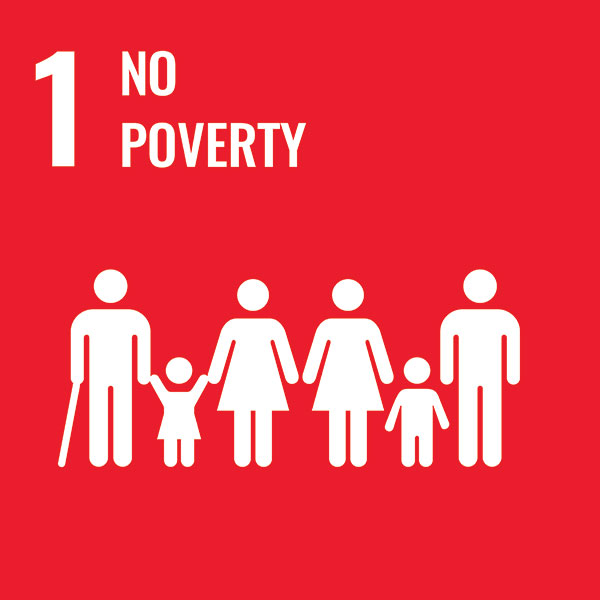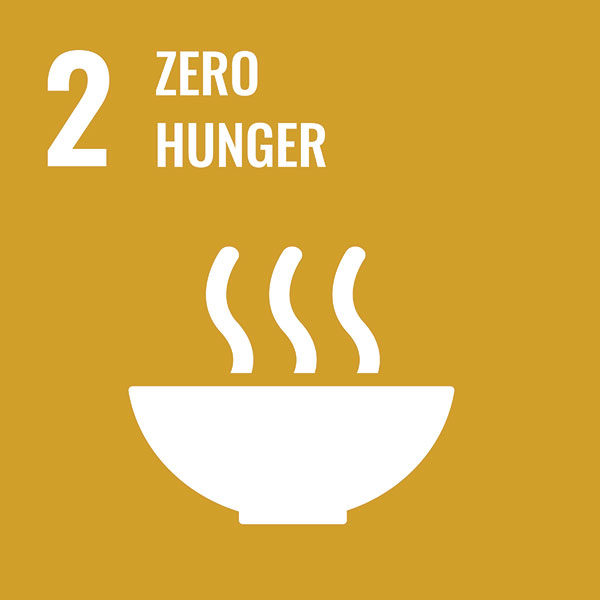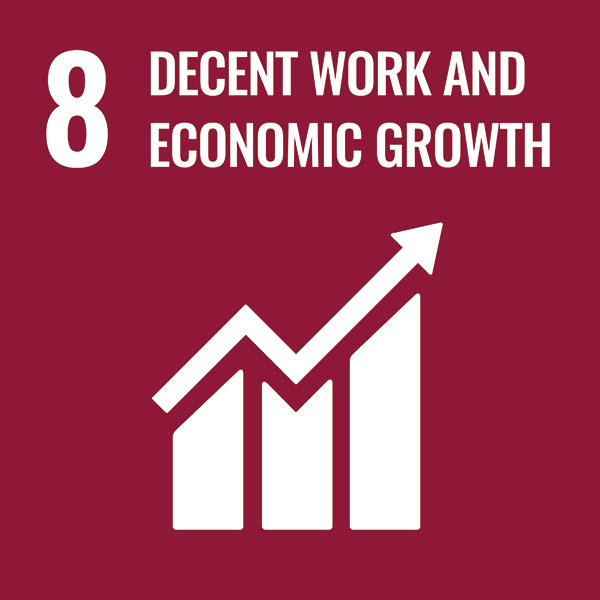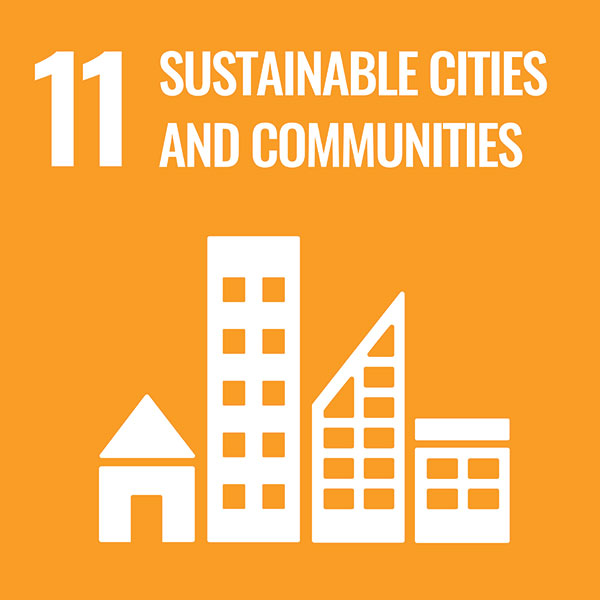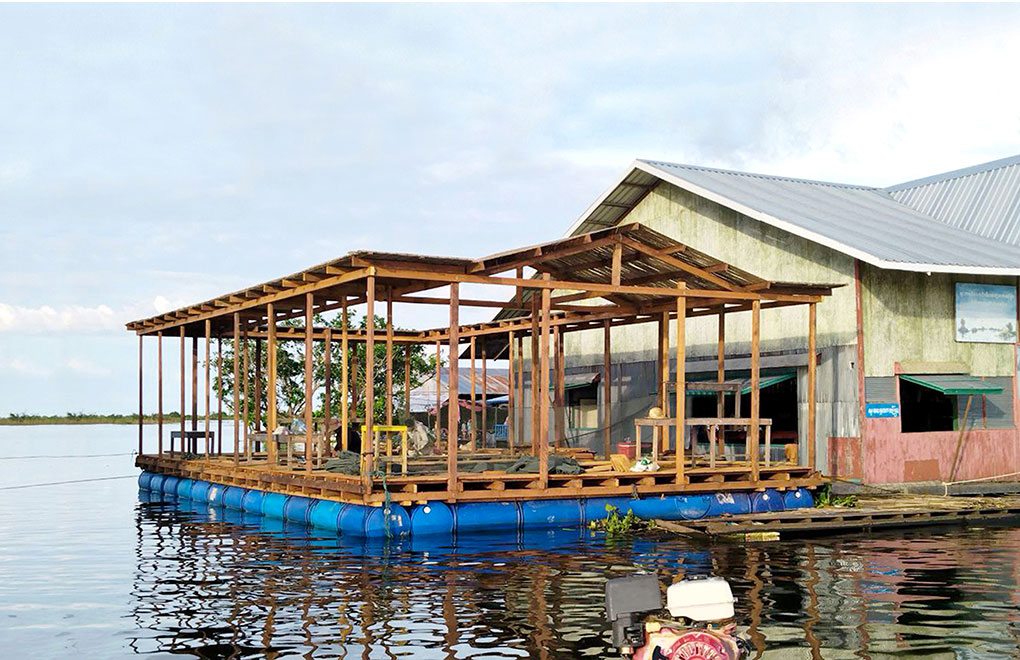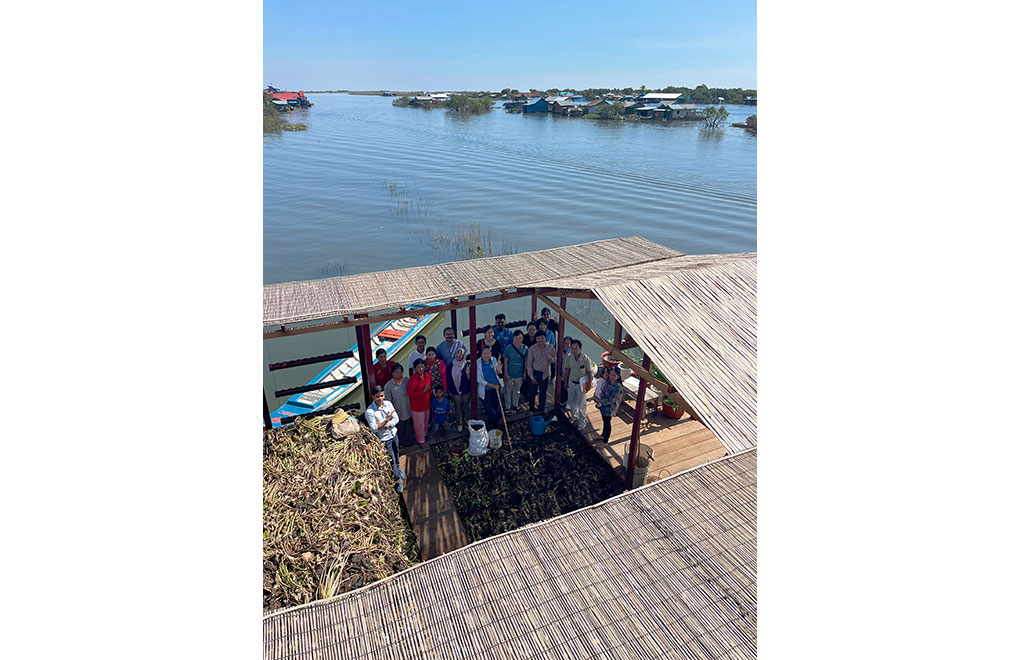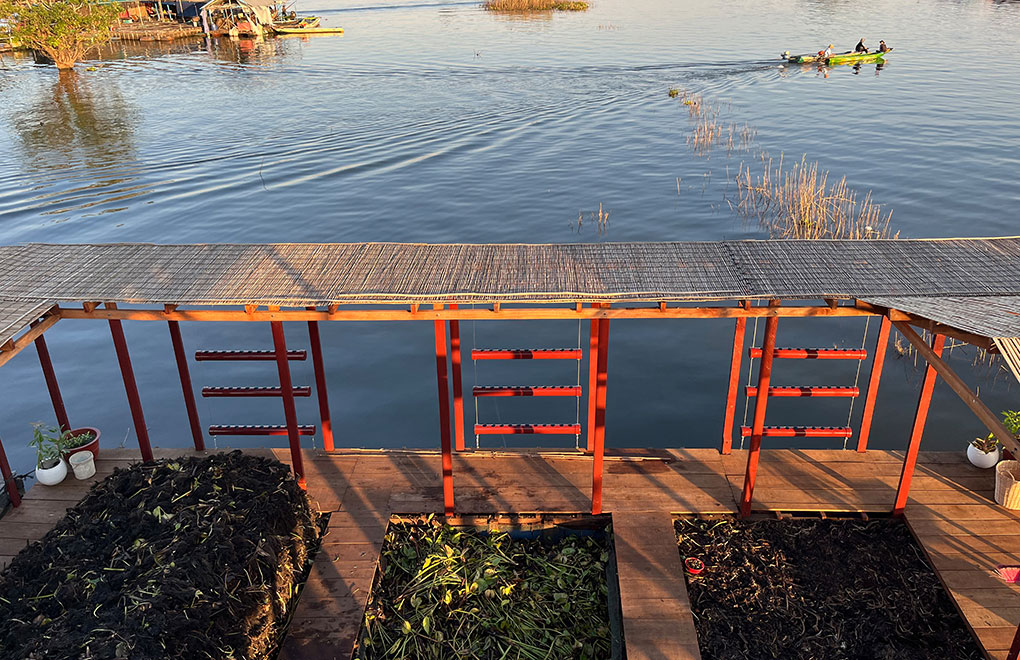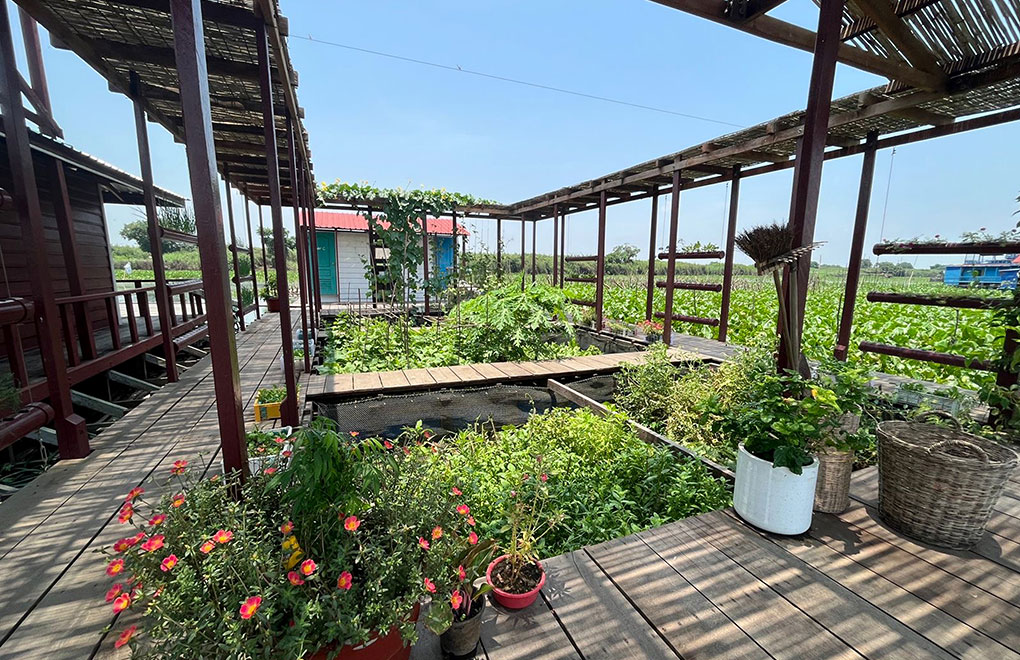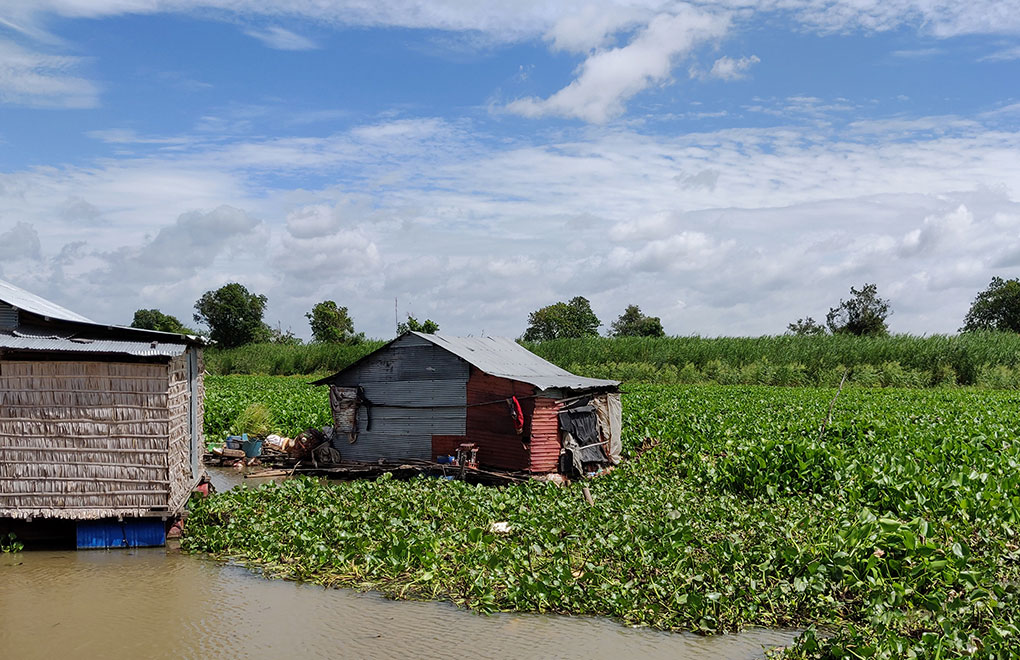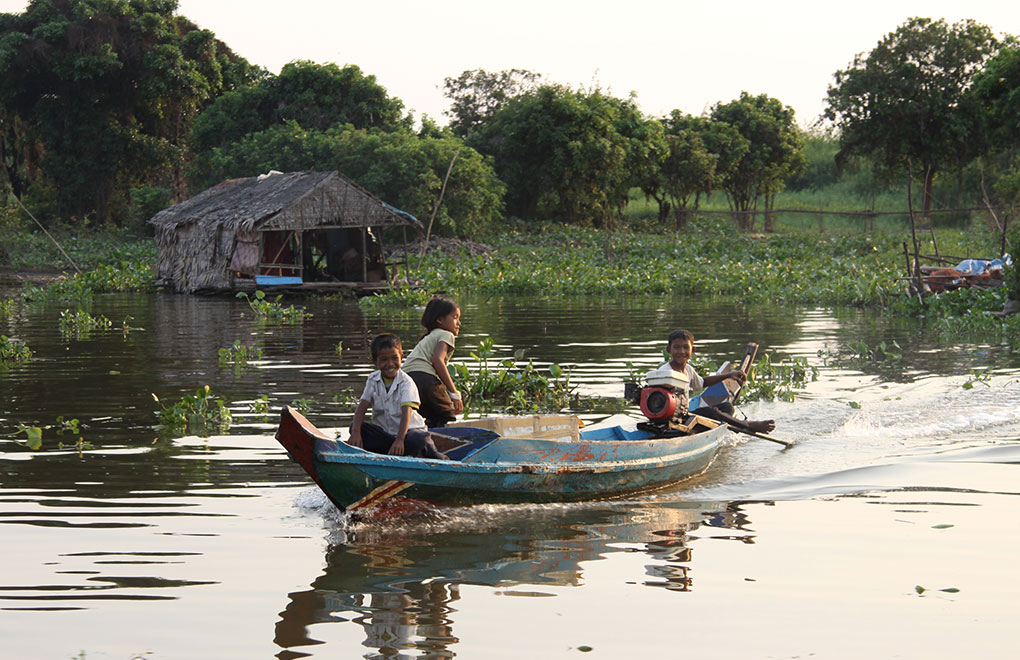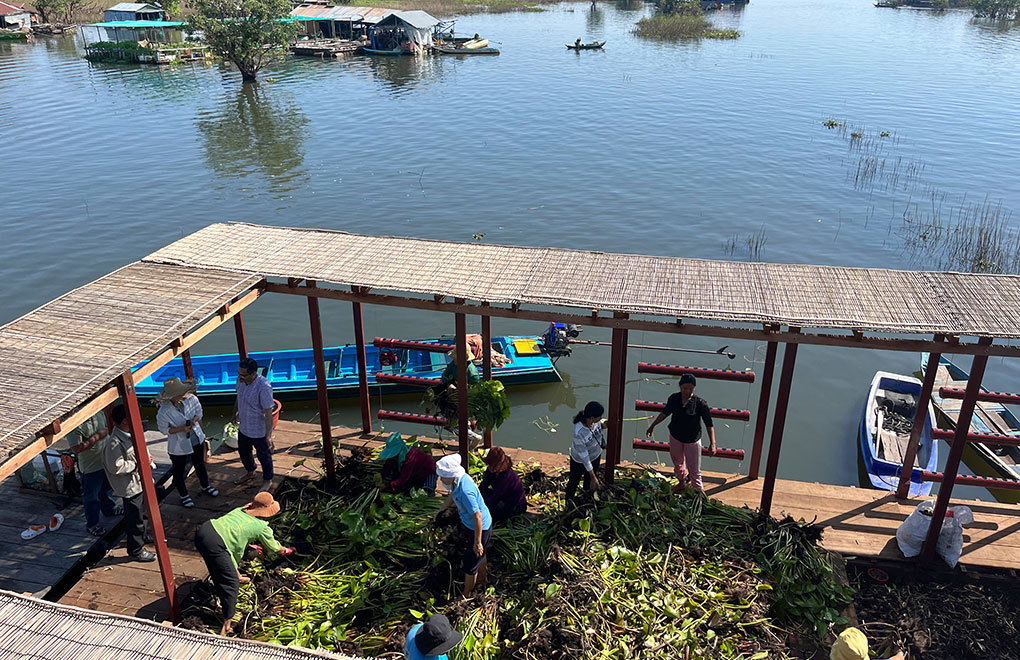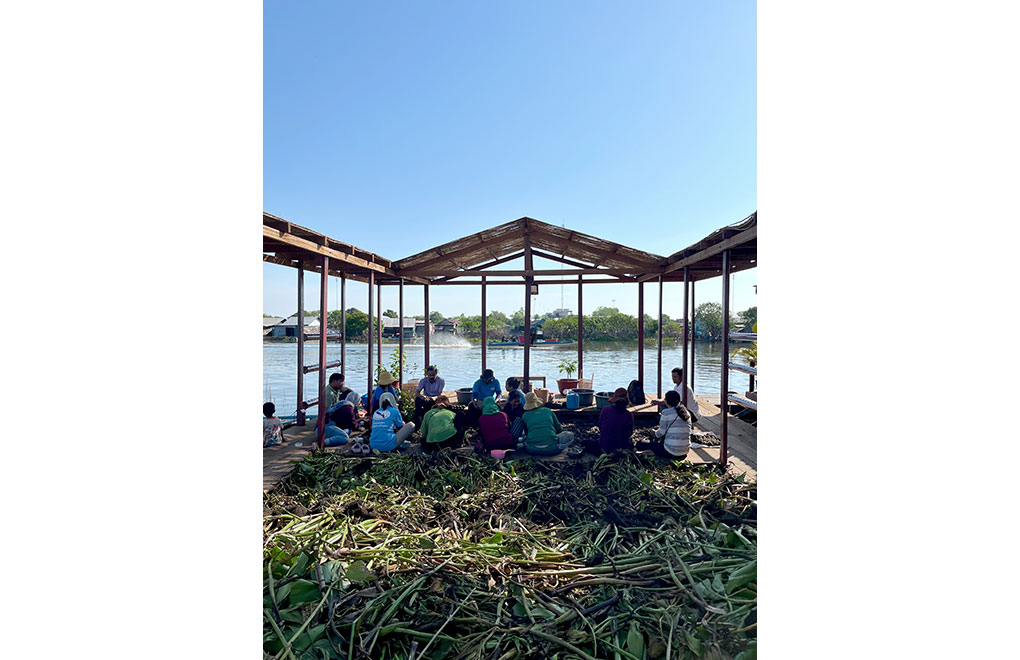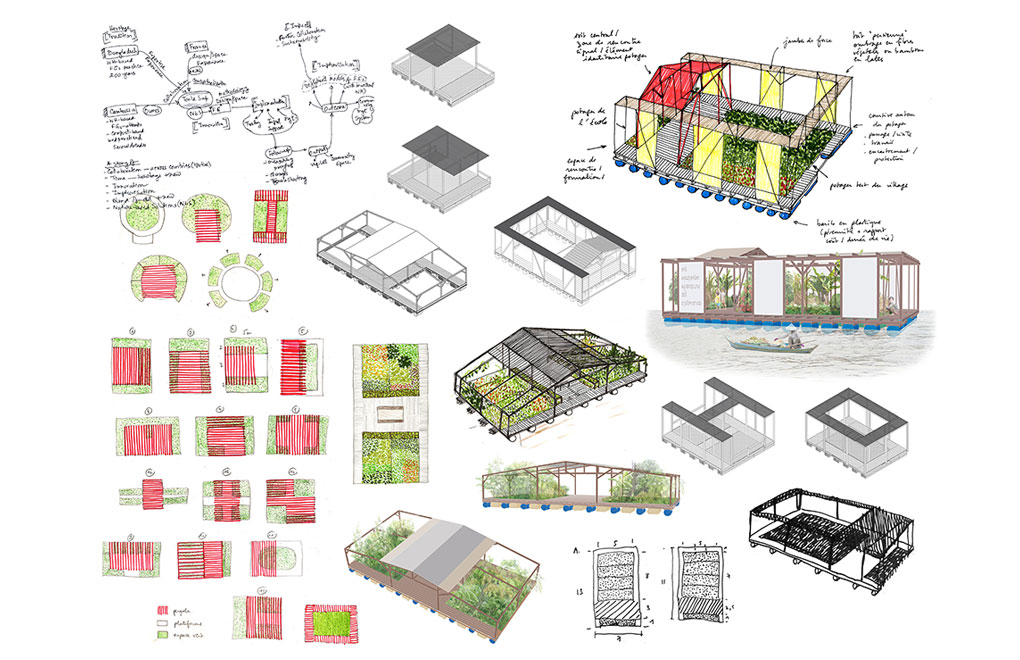Project Overview
The Water Hyacinth Floating Garden project is a sustainable solution that empowers residents of Prek Toal village, Cambodia, to achieve food self-sufficiency. By utilizing hydroponics with water hyacinths, villagers can cultivate their own fresh produce, reducing their reliance on expensive imported food. This project addresses the challenges of food insecurity and limited access to resources, improving the overall quality of life for the community.
Project Details
General Information
Prek Toal floating village is at about one hour by boat from the land, obliging its inhabitants, mainly fishermen, to buy fruits and vegetables that are transported by boat to the village, and thus are sold at a higher price to the families living there (who are poorer than those living on the lands). Our project aims at creating a vegetable floating garden,, and offering to these villagers the possibility to cultivate fruits and vegetables locally, to foster their autonomy and food security, through the implementation of a hydroponic technique which consists of using invasive water-hyacinth plants as a fertile substrate to produce diversified vegetables and fruits. Answering several aims: sanitary (by filling nutrient deficiencies), environmental (by using a nocive and invasive plant that is superabundant on the Tonle Sap lake, as the main material for the floating garden), socio-cultural (through trainings and the transmission of skills and know-how) and economical (by developing new sources of incomes for the families), this community floating garden would allow to implement and experiment an innovative low-technology in Prek Toal floating village, and offer trainings to the inhabitants, so as to enable them to create their own family floating garden and be more self-sufficient.
Creative Solution (Creativity/Innovation)
Adapting this hydroponics to the context of Prek Toal floating village, we set up a collaborative methodology and iterative process with several local NGOs, the villagers and the Bangladeshi experts, in order to design a community floating garden that would foster local food production, and offer a permanent social place for the families to meet, learn and interact.
The floating garden is composed of a wooden structure and platform, and incorporate three substrates for the production of various species of vegetables. The main challenge and innovation was to implement this technique with the Tonle Sap lake's specific hydrological phenomenon.
Social Impact (Inspiration/Impact)
Since the inception workshop in December 2022 and during the whole first year of experimentation, the villagers were able to buy local and affordable vegetables thanks to the water-hyacinth floating garden. Groups of children participated to practical workshop and were able to bring back home their own production, sharing in the same way the project with their parents. Several families were trained, and are currently implementing their own floating garden. The community floating garden allows the villagers of Prek Toal to appropriate and adapt a specific technique to their own usages and needs. It is still being used and developed.
Participation/Cooperation
Working on such a specific topic as water-hyacinth garden, and in another country, the complementary of skills and the network's anchorage would determine the viability and relevancy of this project.
This is why I proposed to Osmose (Khmer-French association I have been working with since 2009) to collaborate on this new project. I also partnered with another designer and two architects, and with Bangladeshi Dr Haseeb Irfanullah & Sonia Shahid (for their expertises on the water hyacinth hydroponics). Lastly, I contacted other Khmer NGOs with complementary knowledges (agronomy, agroecology), to advice and train the villagers and insure the project's long-term development.
Vision for the Future
This water-hyacinth floating garden is a pilot project, which fosters an iterative process and can be adapted by its users according to the experiments and outcomes.
It can be replicated in other floating villages of the Tonle Sap lakeSap Lake (and in other flooded parts of the world facing water- hyacinths invasion and lack of food security). The Lake Clinic association would currently like to replicate the project in another village of the lake named Moat Khla. Besides, the concept is to propose training sessions to learn this specific hydroponic technique, and empower the villagers to make their own family floating garden.

